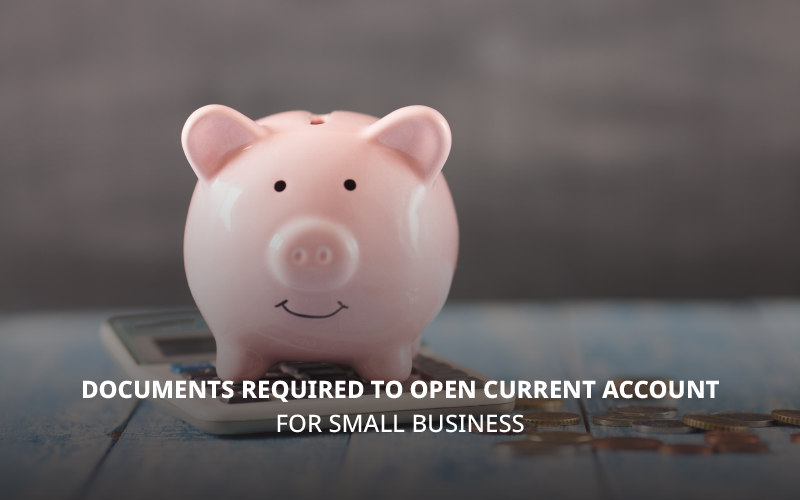Did you know over 68% of small businesses have separate bank accounts for personal and business transactions? If you’re looking to open a current account for a small business in India, this is exactly what you need.
In this article, we explore:
- Why do you need a current account
- How to choose a current account
- Documents required to open a current account in India
Why have a current account for your small business?
A current account is designed specifically for businesses transacting regularly in larger volumes. Normally, this is a zero-interest account. Many individual businesses still use personal bank accounts for their transactions.
Depending on your turnover volume and type of business, you can decide if you want a savings account or a current account.
What are the advantages of having a Current Account?
1. Separate your business needs from your personal finance:
When you open a current account, it helps you plan your business finances better. You can analyse whether your business is running on a profit/loss.
Separating your accounts also helps companies organize accounting records, avoid overspending, and file taxes easily.
2. Increased Creditworthiness:
Opening a current account is the first step to establishing your business credit. This helps you qualify easily for business loans in the future. Accelerate your creditworthiness by showing proof of business with a current account.
Choose a reputed bank and keep a letter ready that states you have a current account with them.
Documents required to needed to open a Current Account
When you are looking to open a current account, the bank you approach will these details:
Basic Required Documents for all businesses:
- PAN Card – Permanent Account Number (PAN Card)
- Photo ID Proof – Valid Indian Passport, Aadhar Card or Voter ID card
- Partnership Deed (if applicable)
- Passport Size Photo – Latest passport size photo of the business owner (s)
- Address proof – Electricity bill, Bank statement, Aadhaar card, Valid Indian Passport, Voter Identity Card, or a rent agreement in your name.
- ID and address proof of small business owner (s)
- Certificate of Incorporation
- Blank cheque from an existing bank account
Extra documents based you need depending upon your business type
For Sole Proprietorship:
- Two documents confirming the name and address — issued by a Government authority/ department, as registration/ license document
- Job card issued by NREGA duly signed by an officer of the State Government
- Latest passport-size colour photograph of the sole proprietor
- PAN/Form 49 A along with Form 60 if applied for PAN
- In case Power of Attorney (POA) has been granted for account operations, photograph, and identity and address proof of the POA holder should also be submitted.
For Partnership Firms:
- Registration certificate if your firm is registered
- Partnership deed
- List of beneficial owners holding more than 15% in the firm
- Address proof and identity proof of the partners
- An official document identifying the partners holding the power of attorney
- Trade License
For Public/ Private Ltd. Companies:
- Board Resolution (BR)
- Certificate of incorporation.
- Memorandum of Association (MoA) and Articles of Association (AOA)
- An updated list of directors.
- Current landline/ mobile number and e-mail ID of the entity.
- Shareholding pattern/ list of beneficial owners holding more than 25% in the company either directly or indirectly
How to choose a current account for your business
Lower Minimum Balance Accounts
Choose a bank that allows you to keep a lower minimum balance or a zero balance account. If your bank imposes a high minimum balance on your account, it could become a financial burden and pose issues for your working capital.
Stay updated on withdrawal limits
Your current account helps you manage daily cash flow too, so keep yourself informed on the withdrawal limits for your account. Most current accounts do not have a limit on the number of withdrawals but there could be a fee charged after a particular limit.
Want to understand legal and compliance matters for your small business?
Here’s something completely FREE of cost for you.
There are several legal procedures that come with careful documentation before you open an account. What are the different compliance and registrations your business needs?
Check out this FREE detailed course on ‘Legal and compliance matters for your small business’ on mojoVersity – our e-learning platform tailormade for small businesses.

